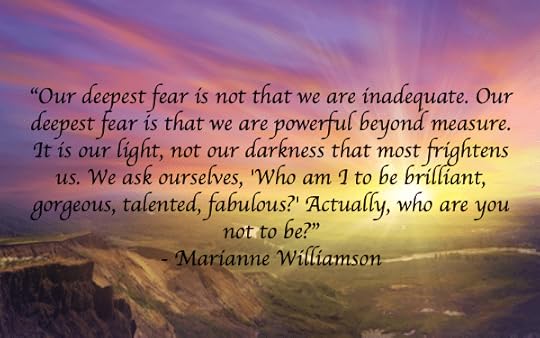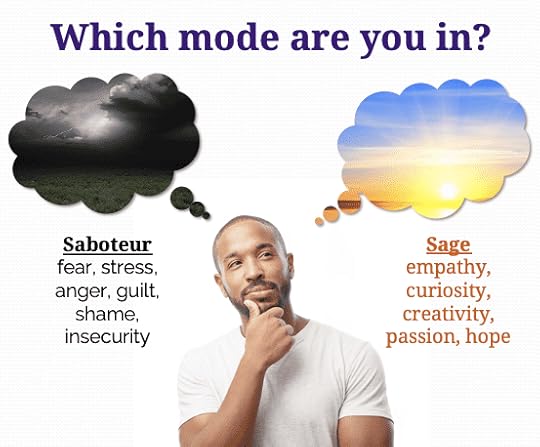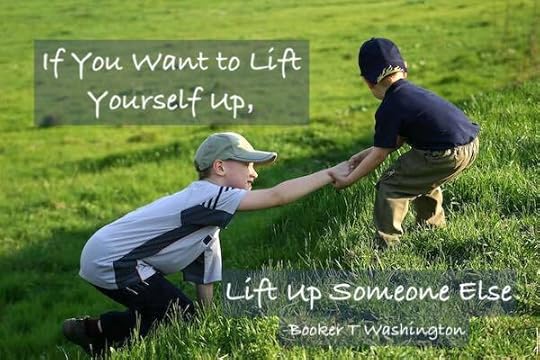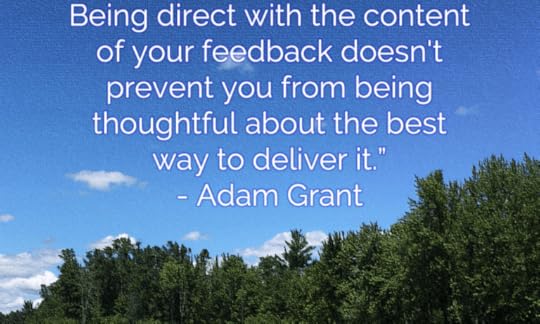Tina Hallis's Blog, page 9
November 27, 2021
Can Your Thoughts Impact Your Mood & Your Health?

Have you ever heard of the placebo effect, sometimes called the sugar pill effect? It’s this idea that patients believe they’re getting a medicine, surgery, or intervention that will provide relief of their symptoms so they expect it to work. And it commonly does. In her book, Mind Over Medicine, Dr. Lissa Rankin references studies that demonstrate placebos can prompt bald men to grow hair, lower blood pressure, cure warts, heal ulcers, decrease stomach acid, decrease colon inflammation, lower cholesterol, increase white blood cell activity, and relieve pain.
When potential drugs are tested to see how effective they are, they have to perform better than the control group which receives a placebo. This is not an easy feat since the placebo often shows a 20 to 40% improvement (or even higher) on its own.
Then there’s the opposite nocebo effect; believing something will have a negative impact. For example, if patients in the control group are warned that they may experience side effects like nausea and vomiting, it’s very likely they will. In her book, Dr. Ranking cites Dr. Herbert Benson saying, “Surgeons are wary of people who are convinced they will die.” Patients who were “convinced” of their impending death were compared to another group who were “unusually apprehensive.” While the apprehensive group did pretty well, those who were convinced they were going to die usually did.
The point of these intriguing examples is to help us fully appreciate the power of our thoughts and the mind-body connection. It’s now recognized that our thoughts, expectations, and feelings affect our physiology, signaling our body how to respond. In fact, they can even affect which genes are turned off or on.
But how often do you think about what you think about? How often do you react instead of respond to daily situations? If you live in your natural default mode where your survival instinct is in charge, it’s likely that you often get stuck in a loop of negative thoughts. And the resulting frustration, stress, disappointment, and discouragement impact which hormones, neurotransmitters, and signaling pathways are activated, which not only impacts your mood and your actions, they also impact your health.
November 9, 2021
Are you good at following instructions? Or do you ignore what your emotions are telling you?

I never knew that my emotions were trying to tell me something! Especially my negative emotions. I just thought they were meant to make me feel bad. But Positive Psychology has taught me that they actually serve a greater purpose – they are a warning signal, instructions that I need to take action. But how often do we miss the purpose of the instructions and instead just get stuck feeling discouraged, frustrated, or mad?
For example, does your inner voice ever complain that you shouldn’t have to be the one to do “everything?” Maybe you think this when you’re putting stuff away, washing the dishes, shoveling the driveway, or mowing the yard. Maybe you think this when you’re coming into work on the weekends, reminding teammates to finish their part of the project, or just cleaning glasses out of the lunchroom sink. The more you replay this frustration at the lack of appreciation, the bigger and louder it gets.
Now you’re in a bad mood. Not only does this negative energy not feel good, but it also gets in the way of your motivation, your ability to focus on your work, and it hurts your relationships. It’s easy to let that bad mood permeate your interactions; especially with those people that are the cause of your aggravation, which only makes things worse.
Instead of focusing on this negative emotion, what if you interpreted the thoughts and frustration as a signal, as instructions? It could be a message that you need to have a conversation with the other person to respectfully share your concerns. Or maybe you need to broaden your perspective and realize all the stuff the other person does that you don’t notice. Or maybe you need to reflect on the situation when you’re calm and see if it really is an issue.
Give it a try this week. When you notice yourself feeling upset, instead of getting stuck feeling bad, look for the instructions.
November 7, 2021
What Do You Appreciate About Yourself?

If I were to list all the things I don’t like about myself, you’d probably relate to me and my struggles. After all, we’re comfortable focusing on our shortcomings. But if I were to list all the things I like about myself, you’d probably think I was prideful, egotistical, or narcissistic.
But what about self-love? What about messages that tell us we must first love ourselves to truly love others?
Today, I want you to forget about being humble or self-deprecating. I want you to forget how other people might see your self-love.
I want you to make a list of things you appreciate about yourself.
Yes! I know this can be hard. It goes against our upbringing and our brains wiring to focus on the negative. But it’s a powerful practice that can build our self-worth and our happiness.
To get started, think of your physical traits, your skills, your experience, your strengths, your character traits, your personality, etc.
For example,
Instead of focusing on how much I don’t like my spindly arms, I choose to appreciate that I’m thin.Instead of wishing I was more outgoing, I choose to appreciate my calm demeanor.Instead of wishing I had more experience with sales and marketing, I choose to appreciate my experience in biochemistry.Instead of wishing I was more organized, I choose to appreciate my flexibility.Like so many other aspects of our survival instinct and our societal norms, we need to purposely think about our positive traits and take time to appreciate them. We each have special gifts and talents that we take for granted because they are such an integral part of who we are. But you are an amazing individual and the world needs your gifts now more than ever. So make sure you’re using them and letting them show. This quote by Marianne Williamson has stuck with me from the first time I read it years ago.
“Our deepest fear is not that we are inadequate. Our deepest fear is that we are powerful beyond measure. It is our light, not our darkness that most frightens us. We ask ourselves, ‘Who am I to be brilliant, gorgeous, talented, fabulous?’ Actually, who are you not to be?”
October 31, 2021
Want to Fix a Relationship Issue? Check Your Mode First

We all know that our interactions and relationships with other people can be challenging at times.
Maybe it’s a misunderstanding. You heard them say they were going to take the garbage out, but they thought you were offering to do it.
Maybe it’s a difference in preferences. You like things neat and tidy and it seems like they’re always leaving things out instead of putting them away.
Maybe it’s a difference in personalities. You like to spend time one-on-one with friends or family and they want to plan gatherings with larger groups.
Here’s an important lesson I’ve learned and you’ve probably learned it, too. I shouldn’t try to “fix” these issues if I’m already upset or mad. Feeling upset means I’m in my Saboteur mode, and chances are very good that my tone and words will trigger the other person’s Saboteur. They may feel attacked, and it’s natural for their defenses to kick in. Maybe they shut down. Or maybe they say angry words back to me.
Instead of addressing the issue, I’ve made things worse.
The best way to make things better is to have the discussion when I’m in my Sage mode. Now I’m feeling calm, hopeful, and much more patient. I’m able to truly listen and understand the other person’s perspective. They feel heard and validated. It’s easier to “solve” the problem.
Of course, this is much easier said than done. But here are a few things to make it easier.
Practice pausing and noticing your thoughts and emotions. Practice on the easy, day-to-day stuff. It will become easier to recognize when you’re in your Saboteur or Sage mode.If you’re in the middle of a situation, you may need to create the opportunity to get out of your Saboteur mode. You may have to excuse yourself, or you may need to just stay quiet and keep your words to yourself until later.Remind yourself that we are all imperfect humans. The other person is struggling with their own baggage.Remember their good traits. It’s easy to get stuck focusing on the things about the other person that bug you.Keep your positivity battery charged. Make sure you’re taking care of yourself and finding ways to manage your stress and build your resilience.Here’s to all of us getting better at using our Sage in our interactions and relationships!
October 24, 2021
Feeling Unappreciated? Here’s what made a HUGE difference for me

There were times when I used to feel unappreciated by my family. Like when I would do the dishes when that’s normally my husband’s chore and he didn’t notice. Or when I packed my daughter’s lunch every school day and she never said thank you. But then I learned an approach that made a HUGE difference for me. I’ve shared this tip before, but it’s one of my favorites so here it again!
Do you ever feel unappreciated? Does this happen at work? At home? When I feel like I’m being taken for granted, it puts me in a bad mood. I get frustrated, impatient, and I’m not much fun to be around.
Then I learned this simple (but not easy) tool. Instead of expecting others to read my mind and to notice the things I’ve done, I simply TELL them. The trick is to tell them BEFORE we’re feeling unappreciated and BEFORE we get upset. Why? If we wait until we’re frustrated, we’ll be in attack mode, making the other person feel defensive. This is never helpful and just makes matters worse. But if we tell them in a kind and calm voice, “I was really glad I was able to finish cleaning the kitchen this morning. Did you notice how nice it looks?” Or “That project took a lot of work but I was happy with how it turned out. What did you think?”
Pointing out our efforts and asking for appreciation and feedback may feel uncomfortable at first (especially with our boss). I know it still is for me. But when we calmly and gently let people know what we’ve done and prompt them for some recognition, we take back responsibility for the situation instead of just being a victim and feeling upset. When I hesitate at the idea of bringing up some task I have done, I tell myself that if I can’t ask for acknowledgment then it can’t be that important and I shouldn’t feel bad if they don’t notice. After all, I realize there are many things that others do that I just never seem to see.
What simple situation could you try this approach on this week?
October 17, 2021
Are You Volunteering to Learn About Other People’s Problems? Watch your news consumption

What if everyone you encountered today stopped to tell you all their problems? Everyone at work. Everyone in the store. Everyone at the gas station. On top of that, everyone you knew was calling or texting you with their problems. And you listened.
You would be so informed. You would have so much awareness of everyone’s struggles. Wouldn’t that be awesome?
Or would it?
How would it make you feel if you knew everyone’s stresses and frustrations? What would you do with that information? Maybe there would be times you could help them. And maybe there would be many situations where the only thing you could do was listen.
Many of us volunteer to learn about lots of people’s problems, and most of their problems are totally out of our control. What if it’s affecting our health? Our happiness? Our quality of life?
I bet you’ve figured out that I’m talking about our overconsumption of news. Now more than ever, we’re inundated with bad news whether it’s from news channels like CNN, ABC, Fox, etc. Or from social media, or news feeds on our devices, or news subscriptions delivered via email, or our “quick” visits to news websites.
A few generations ago, the news we heard was about our neighbors and community; We learned about their problems, and we often could help. We learned about dangers in our community that might affect us.
Then it became easier to hear about people’s problems farther away, even from other parts of the world. It helped us understand other people in other lands and their challenges. And there were times we could help. For example, when there were hurricanes or earthquakes, we could donate our money or time. When there were injustices, we could advocate for action to our government officials. And the list goes on.
But today, many of us immerse ourselves in news channels that constantly bombard us with other people’s problems and the only thing we can do is listen. And feel bad. And we start to think the world is a terrible place. After all, all we hear about are the problems. Where is the good? The media knows that our brains are hard-wired to pay much more attention to the bad news.
So consider your news intake. Could you cut back? Should you cut back? How is it affecting your quality of life?
October 9, 2021
Why Can It Be Hard to Be Positive? These reasons may surprise you

My personal journey into growing my positivity skills began in 2011 when I was at a 3-day seminar for creating a culture of innovation. The instructor had a bunch of books at the back of the room. I was checking them out and making a list to get from the library. One of them was The Happiness Advantage by Shawn Achor. That book was the catalyst that set my life in a totally new direction.
That book and my exploration of positive psychology taught me a few major revelations like –
Our survival instinct creates a strong negative bias in how we see the world.We have the ability to notice our thoughts and override our survival instinct.There are practices we can use that make shifting our thoughts easier.But in the past few months, my understanding around positivity and how we see the world has expanded yet again. I’ve learned that some people’s ability to be more positive is much more challenging.
A few articles and discussions led me to a book by William Walsh called Nutrient Power: Heal Your Biochemistry and Heal Your Brain. This book and related content have led me to a few additional revelations such as –
The voice in our head is strongly impacted by how well our biochemistry is balanced.Chemical imbalances can be genetic or acquired from brain injuries, toxin exposure, bad diet, etc.There are lab tests that can identify many of these imbalances such as our levels of copper, zinc, histamine, folate, vitamin B6, and others.In many cases, there are nutrient therapies that can help.Dr. Walsh relates biochemical imbalances to a wide variety of things such as depression, autism, behavior disorders, and even Alzheimer’s. But in addition to these challenges, it became clear to me that even subtle imbalances can impact our mood and negative thinking.
Now when I catch myself labeling someone as pessimistic, unmotivated, grumpy, etc., I remind myself that I don’t know what it’s like to live in their head. I don’t know what challenges they’re currently facing in their life. I don’t know what past traumas they might have. But I also don’t know what their biochemistry is like.
These reminders help me be more patient, understanding, and empathetic. I hope they can do the same for you.
October 3, 2021
They Know They’re Good. I Don’t Need to Tell Them.

My friend is a professional speaker. She’s done tons of talks and videos and interviews. She doesn’t need me to tell her that she’s good. She’s heard it many times before.
So when she wanted me to take a look at a couple of videos she was creating, my mind instantly jumped to suggestions for improvement. I was making a few mental notes as I reviewed her amazing work.
Then I paused. Before I tell her the few ideas I had to make it even better, should I tell her how great she did?
Have you ever assumed that someone already knew they were talented, smart, amazing, generous, etc? And they didn’t need to hear it again from you?
Maybe it’s because it’s something they’ve done many times before so they don’t need encouragement.Maybe it’s because it’s something they’re really good at and they’ve heard compliments before.Maybe it’s because they appear to be confident and self-assured so they don’t need any praise.Maybe it’s because they point out how good they are to others so they already know they’re talented.But maybe they do need encouragement, compliments, and positive feedback from you.
One thing I’ve learned is that we all appreciate appreciation and praise. We want to feel valued and recognized. Even if we appear to be confident, our self-worth can often use a boost.
Being a positivity catalyst by lifting up others is a great way to also lift ourselves. But sometimes the people who need a lift the most may surprise us. This week, try giving encouragement and praise to someone who doesn’t seem to need it. They may appreciate your recognition more than you’ll ever know.
September 24, 2021
Can We Be Kind & Authentic? Make sure your’e coming from your sage

“I feel it’s important to say what’s on my mind.”
“I want to be authentic and share how I really feel.”
“Transparency is key in a relationship.”
Have you ever heard one of these phrases or some variation? Authenticity and transparency have become popular buzzwords these days. And for good reason. Many of us agree with other’s ideas in an attempt to appease, fit in, or keep the peace.
But here’s a critical key to being “real” with the people around us. We need to check in and make sure we’re sharing from our sage and not from our saboteur.
Our sage finds words and tone that come from empathy, curiosity, and respect. This wisest version of ourselves knows how to offer feedback and opinions in a way that shows that we care and that we have everyone’s best interests at heart.
Our saboteur reacts and uses words and behavior based on frustration, anger, or disappointment. This approach can feel like an attack to the other person and tends to put them on the defensive. We may have voiced our thoughts, but we’ve also triggered their saboteur. Now instead of being open to our feedback, they see us as a threat.
Whether it’s our coworker, partner, or kid, we can pause, notice our instinctive reaction, and then choose a thoughtful but honest response. If we are emotionally triggered in the situation, we may want to stay silent until we can connect with our sage.
Adam Grant sums it up nicely.
“I’m just being honest” is a poor excuse for being rude. Candor is being forthcoming in what you say. Respect is being considerate in how you say it. Being direct with the content of your feedback doesn’t prevent you from being thoughtful about the best way to deliver it.”
Can you think of a recent interaction where your honesty might have been seen as a little harsh? Were you speaking from your saboteur or your sage? Could you have communicated the same message with more empathy?
September 19, 2021
He Told Everyone to Stop Complaining – A glimpse behind the curtain

I was training a department that was going through a lot of change. People were sharing how stressful it was and how hard it made their jobs.
I noticed a gentleman in the back with his arms crossed and a scowl on his face. Suddenly he interrupted, “You should all just be happy you have a job and stop complaining! I was taught in the military that we should each stay in our own lane and stop worrying about anything else.”
At the break, I had a chance to talk to the gentleman and asked which branch of the military he had been in. He told me the Marines. Then he said, “I was there after the tsunami hit Japan in 2011. I was part of the body clean-up crew. These people don’t know how good they have it.”
Suddenly, I had a whole different perspective of this guy and his earlier comment. Suddenly, I had more understanding and empathy.
How often do we get a glimpse behind the curtain to really understand people? How often do we know their hurts, their trauma, their experiences? Yet these are the things that shape their ideas, views, and beliefs.
So many of us put up a good front. We pretend to be happy, to take things in stride, yet on the inside, we’re struggling.
During a recent presentation, one of the attendees was joking around, making everyone laugh. He seemed laid back. Later, we were doing an exercise to help people reframe a stressful situation in their life. Everyone was talking about how now they could see that they were creating a lot of the stress and in the bigger picture, the situation that was bothering them didn’t really matter.
The person who had been joking earlier chimed in. With bitterness in his voice, he said, “That’s because nothing in life really matters.” It was a glimpse behind the curtain.
It’s normal to get triggered because of other people’s words and actions. But if we can remind ourselves that we don’t know what they’re struggling with, hopefully, we can find more patience and empathy.



